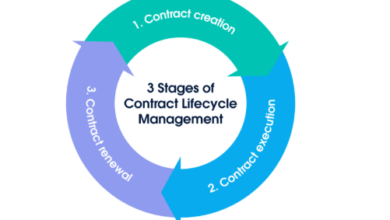How to Manage Pest Control for Multiple Properties Without the Stress

Managing pest control for one property is tough enough. Now imagine having to do it for several properties at once. It can feel overwhelming. But don’t worry, there are ways to handle it without losing your mind. Here’s a guide to help you keep pests under control across multiple properties.
1. Create a Pest Control Plan
First things first, you need a plan. Start by listing all the properties you manage. Write down the specific pest problems you face at each place. Is it mice in the basement? Ants in the kitchen? Each property will have its own issues. Knowing what you’re dealing with helps you get organized.
Once you have your list, set a schedule. This is where you decide how often to check for pests. Monthly inspections are a good start. Mark it on your calendar. It helps to have reminders set up, so you don’t forget.
2. Hire a Professional Pest Control Service
Sometimes it’s best to call in the pros. Look for a reputable pest control service. They have the experience and tools to handle multiple properties. When choosing a service, check their reviews and ask for recommendations. A good pest control company will also help you set up a routine maintenance plan.
Negotiate a contract that covers all your properties. This can save you money and ensure consistent service. Make sure the contract includes regular inspections and emergency visits. Ask the pest control service for detailed reports after each visit. These reports help you stay informed about what’s happening at each property.
3. Educate Your Tenants
Your tenants play a big role in pest control. Educate them about preventing pests. Simple things like keeping food sealed and taking out the trash regularly can make a big difference. Provide them with a list of do’s and don’ts.
Host a meeting or send out a newsletter to share these tips. Make it clear that they should report any pest sightings immediately. The sooner you know about a problem, the faster you can deal with it. Good communication with your tenants is key.
4. Regular Maintenance and Cleaning
Regular maintenance and cleaning are crucial in keeping pests away. Make sure each property is well-maintained. Fix any leaks, seal cracks, and clean common areas. Pests love hiding in clutter and dirt. Keeping the properties clean reduces the chances of an infestation.
Set up a routine for your maintenance crew. They should check for signs of pests during their regular visits. Small issues can turn into big problems if not addressed quickly. Regular maintenance helps you catch these issues early.
5. Use Pest Prevention Products
There are many products available to help prevent pests. Use pest control sprays, traps, and baits as needed. Place traps in areas where pests are commonly seen. Use sprays around the perimeter of your properties to create a barrier. Make sure these products are safe for use around children and pets.
Consider using natural pest control methods as well. Essential oils like peppermint and eucalyptus can deter pests. Diatomaceous earth is another natural product that can help keep bugs away. Use these products as part of your regular maintenance routine.
6. Keep Detailed Records
Keeping detailed records is essential when managing multiple properties. Create a logbook for each property. Record any pest sightings, treatments, and maintenance activities. This helps you track what’s been done and what needs to be done.
Having detailed records also helps when working with pest control services. You can show them your logs, and they can tailor their treatments to your needs. It’s also useful if you ever need to report a pest problem to local authorities. Detailed records show that you are proactive in managing pest control.
7. Be Proactive, Not Reactive
It’s easy to fall into the trap of only dealing with pests when there’s a problem. But being proactive is much better. Regular inspections and maintenance help you catch issues before they become major problems. This saves you time, money, and stress in the long run.
Stay vigilant and make pest control a regular part of your property management routine. The effort you put in now will pay off later. Your tenants will be happier, and you’ll have fewer pest-related headaches to deal with.
8. Build Good Relationships with Your Tenants
Building a good relationship with your tenants can make managing pest control easier. When tenants trust you, they are more likely to report problems quickly. Be approachable and responsive. If a tenant tells you about a pest problem, thank them and take action right away.
Sometimes, tenants might be embarrassed to report pests. Make it clear that pest problems are common and nothing to be ashamed of. Regularly check in with your tenants to ask if they have noticed any issues. This shows that you care about their living conditions.
9. Invest in Training for Your Team
Your maintenance team plays a huge role in pest control. Invest in training for them. Teach them how to spot signs of pests and what to do if they find any. The more knowledgeable your team is, the better they can help keep pests under control.
You can also bring in a pest control expert to give a workshop. This can be a good way to get everyone on the same page. Training helps your team feel more confident and capable.
Read also: From Manual to Magical: The Rise of Smart Home Interiors
10. Use Technology to Your Advantage
Technology can make managing multiple properties easier. There are apps and software designed to help with property management. These tools can help you schedule inspections, track maintenance tasks, and communicate with tenants.
Some apps allow you to take pictures and notes during inspections. This can be very useful for keeping detailed records. Look for tools that offer reminders and alerts. This way, you never miss an inspection or treatment.
11. Stay Informed About Pest Control Methods
Pest control methods are always changing. New products and techniques come out all the time. Stay informed about the latest developments. Read articles, attend workshops, and talk to pest control professionals.
Knowing the latest methods can help you deal with pests more effectively. It also shows your tenants that you are serious about keeping their homes pest-free.
12. Be Prepared for Emergencies
Sometimes, no matter how well you plan, emergencies happen. Be prepared. Have a list of emergency contacts, including your pest control service. Make sure your tenants know what to do in case of a serious pest problem.
Keep emergency supplies on hand. This might include extra traps, sprays, and cleaning supplies. Being prepared helps you handle emergencies quickly and calmly.
13. Set a Budget for Pest Control
Pest control can be expensive, especially if you manage multiple properties. Set a budget for pest control. This should cover regular inspections, treatments, and emergency situations. Having a budget helps you plan and avoid unexpected expenses.
Discuss the budget with your pest control service. They might offer discounts for long-term contracts or multiple properties. Budgeting helps you manage your finances and ensures you have the resources to keep pests under control.
14. Communicate Regularly with Your Pest Control Service
Regular communication with your pest control service is important. Keep them informed about any changes or issues. They need to know if you’ve had new tenants move in, if there’s been construction work, or if you’ve noticed any new pests.
Ask for regular updates from them as well. They should provide you with reports after each visit. These reports help you understand what’s been done and what needs to be done next. Good communication ensures that everyone is on the same page and working towards the same goal.
15. Monitor and Evaluate Your Plan
Once your pest control plan is in place, monitor it regularly. Check to see if it’s working. Are there fewer pest problems? Are your tenants happier? Use the information from your inspections and reports to evaluate the plan.
If something isn’t working, be willing to make changes. Maybe you need more frequent inspections. Maybe a different treatment is needed. Stay flexible and open to adjustments. The goal is to find the best way to keep pests under control.
Conclusion
Managing pest control for multiple properties doesn’t have to be stressful. With a solid plan, good communication, and the right tools, you can keep pests under control. Stay organized, stay informed, and work with your tenants and pest control service. With these steps, you’ll make pest control a manageable part of property management.




